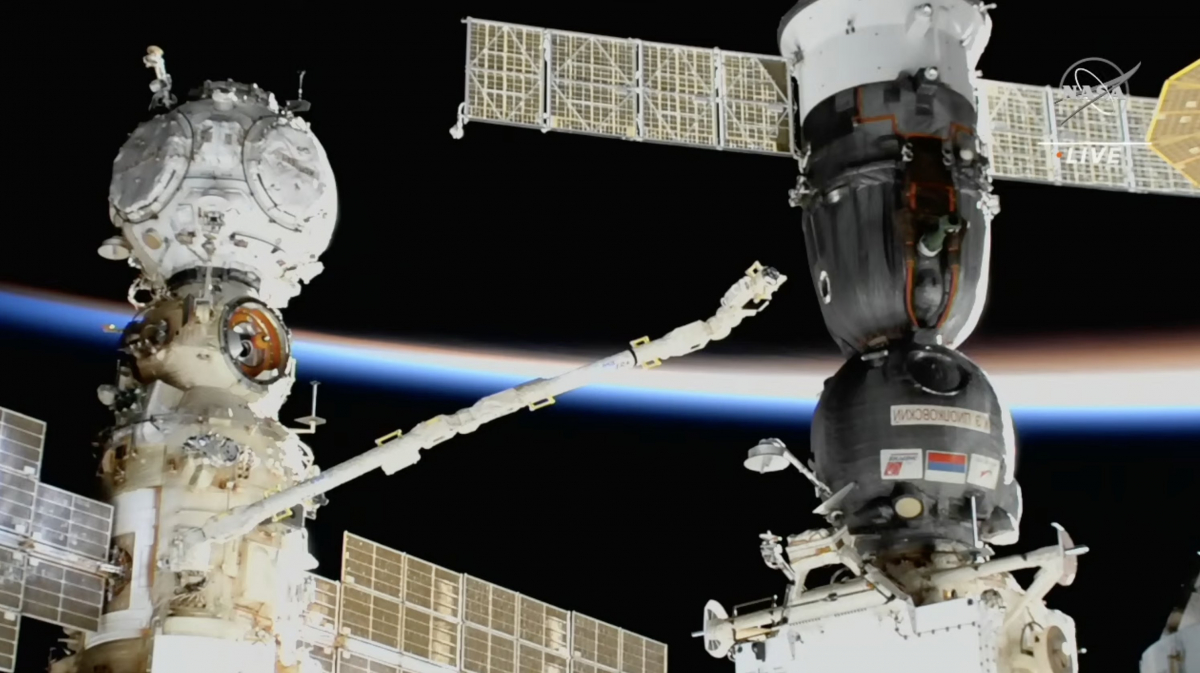Following the leak that occurred on the ship on which they left Earth last September, three passengers of the International Space Station are forced to wait for the arrival of a replacement ship... in a month.
Crisis scenario
On Jan. 11 a state commission met about the leak found on Dec. 15 on the Soyuz MS 22, docked since Sept. 21 to the International Space Station.
It's a hole smaller than 1 millimeter, which appeared in the thermal control system of the spacecraft, that lets coolant escape.
After reviewing images provided by cameras on the Canadarm2 and Era manipulator arms of the ISS, the ship was deemed unfit for repatriation to Earth of its three passengers.
The Soyuz MS 22 will still be returned to Earth, empty, while the launch of the Soyuz MS 23, also without passengers, from the Baikonur cosmodrome in Kazakhstan has been moved up from March 16 to February 20.
Seat exchange
Meanwhile, Russian cosmonauts Serguei Prokopiev and Dimitri Peteline find themselves without a lifeboat, while for safety's sake the seat of American astronaut Francisco Rubio has been temporarily transferred from the Russian spacecraft to SpaceX's Crew Dragon capsule, currently docked to the station as part of Crew 5 mission.
A package has been attached to Rubio's place in Soyuz 22, to maintain the spacecraft's centering.
The three seats from Soyuz 22 will be installed on Soyuz MS 23 upon its arrival.
Six months of orbital
If all goes well, Sergei Prokopiev, Dmitry Petelin and Francisco Rubio will finally extend their orbital stay by another six months (corresponding to the Soyuz's nominal lifetime).
Thus, they are expected to complete a full-year mission, which will be a first in the history of the orbiting complex - the record for longevity in orbit is still held by Russian cosmonaut Valeriy Poliakov, with 437 days spent aboard the Mir station, between January 1994 and March 1995.
Découvrez cet article sur Air&Cosmos

